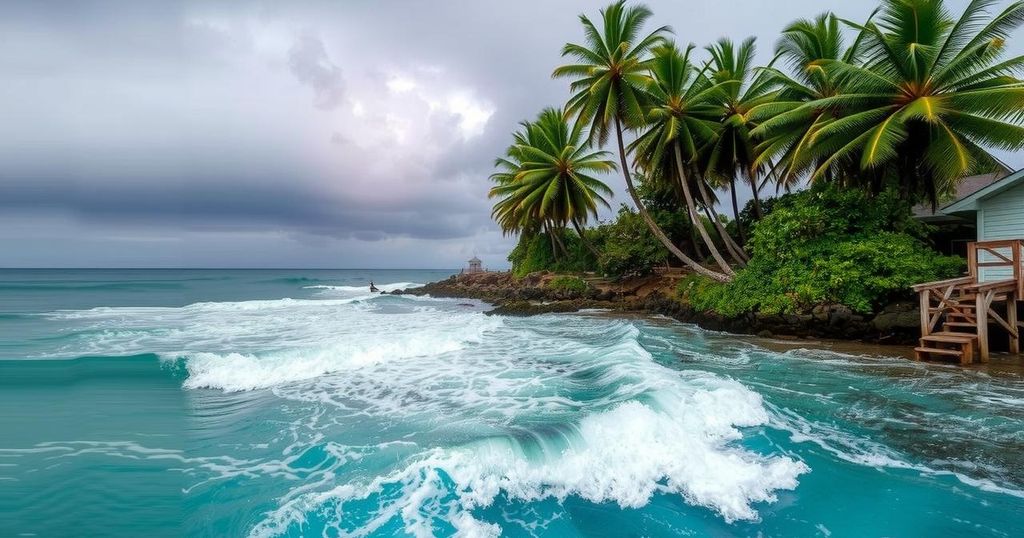Expert Reactions to Cyclone Chido’s Impact on Mayotte
Cyclone Chido has caused significant devastation in Mayotte, resulting in hundreds of fatalities. Experts highlight the challenges of predicting cyclones’ peak intensification amid rapidly changing climate conditions. Urgent investments in infrastructure resilience and early warning systems are essential to protect vulnerable island communities from future disasters.
Mayotte has recently experienced a catastrophic tropical cyclone, designated as Chido, resulting in significant loss of life and extensive damage to the island’s infrastructure. Experts from the University of Reading have commented on the cyclone’s intensification and its implications for future preparedness. Dr. Alex Baker noted the cyclone’s rapid intensification and the difficulties in predicting its peak intensity despite adequate tracking forecasts. These developments indicate an underlying vulnerability exacerbated by climate change and low resilience in local communities.
Dr. Helen Hooker further elaborated on the limitations faced by Mayotte, emphasizing the challenges small islands encounter during extreme weather events. The prediction capabilities are notably strong; however, the absence of safe evacuation options critically endangers communities when faced with cyclones of this magnitude. Investment in early warning systems and infrastructure resilience has become paramount, as climate change continues to enhance the likelihood of severe cyclonic activity.
Lastly, Professor Liz Stephens asserted the increasing intensity of tropical cyclones in the South West Indian Ocean, citing warmer oceanic conditions as a contributing factor. She highlighted the essential need for constructing durable infrastructure in vulnerable regions and proposed that strategies employed by nations like Bangladesh should be adopted globally to mitigate the impacts of future cyclones.
The phenomenon of tropical cyclones poses a notable threat to coastal communities, particularly small island nations. Mayotte, a French territory in the Indian Ocean, has experienced devastating effects from Cyclone Chido, which has raised concerns over preparedness and resilience in the face of climate change. Increasing ocean temperatures are correlated with the escalation of tropical cyclone intensity and frequency, demanding urgent action from governmental bodies to develop effective early warning systems and resilient infrastructure.
In conclusion, Cyclone Chido’s impact on Mayotte underscores the vulnerabilities small island communities face due to extreme weather exacerbated by climate change. Experts advocate for increased investment in infrastructure and early warning systems to prevent loss of life in future cyclonic events. As climatic conditions evolve, establishing resilience within affected communities is crucial to withstand severe weather disasters effectively.
Original Source: www.reading.ac.uk




Post Comment